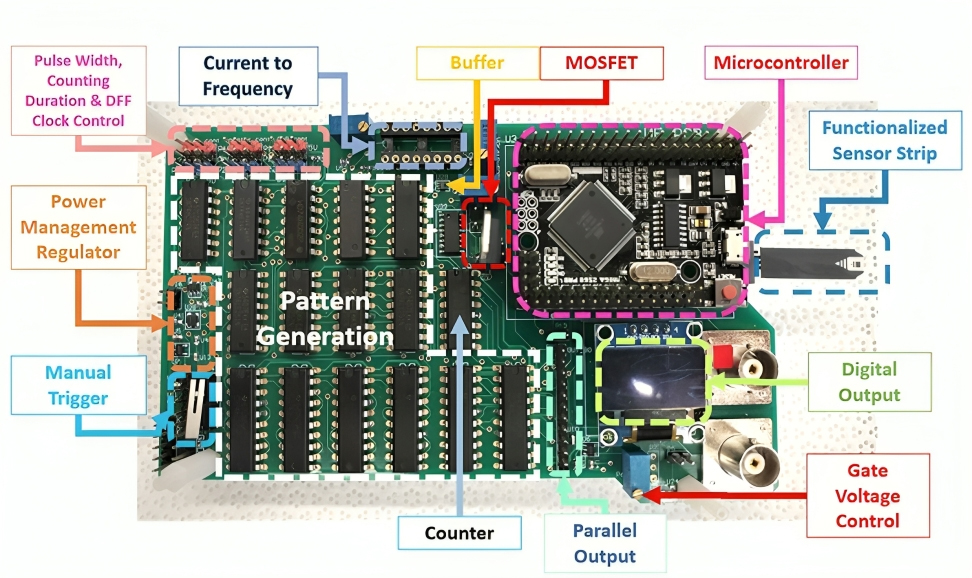This hand-held biosensor makes breast cancer screening fast, affordable, and accurate.
From the Journal: Journal of Vacuum Science & Technology B

WASHINGTON, Feb. 13, 2024 — Breast cancer is on the rise, but new tools for early detection could save lives.
In Journal of Vacuum Science & Technology B, by AIP Publishing, researchers from the University of Florida and National Yang Ming Chiao Tung University in Taiwan reported successful results from a hand-held breast cancer screening device that can detect breast cancer biomarkers from a tiny sample of saliva. Their biosensor design uses common components, such as widely available glucose testing strips and the open-source hardware-software platform Arduino.
“Imagine medical staff conducting breast cancer screening in communities or hospitals,” author Hsiao-Hsuan Wan said. “Our device is an excellent choice because it is portable — about the size of your hand — and reusable. The testing time is under five seconds per sample, which makes it highly efficient.”
The device uses paper test strips treated with specific antibodies that interact with the targeted cancer biomarkers. A saliva sample is placed on the strip, and pulses of electricity are sent to electrical contact points on the biosensor device. These pulses cause the biomarkers to bind to the antibodies and alter the charge and capacitance over the electrode. This produces a change in the output signal, which can be measured and translated into digital information about how much biomarker is present.
The design is revolutionary compared to its alternatives. Mammograms, ultrasounds, and MRIs are costly and invasive and require large, specialized equipment, present low-dose radiation exposure, and can take days or weeks to return test results.
“In many places, especially in developing countries, advanced technologies like MRI for breast cancer testing may not be readily available,” Wan said. “Our technology is more cost-effective, with the test strip costing just a few cents and the reusable circuit board priced at $5. We are excited about the potential to make a significant impact in areas where people might not have had the resources for breast cancer screening tests before.”
The biosensor requires just a drop of saliva, and it can provide accurate test results even if the concentration of the cancer biomarker in the sample is only one quadrillionth of a gram, or one femtogram, per milliliter.
“The highlight for me was when I saw readings that clearly distinguished between healthy individuals and those with cancer,” Wan said. “We dedicated a lot of time and effort to perfecting the strip, board, and other components. Ultimately, we’ve created a technique that has the potential to help people all around the world.”
###
For more information:
Wendy Beatty
media@aip.org
301-209-3090
Article Title
High sensitivity saliva-based biosensor in detection of breast cancer biomarkers: HER2 and CA15-3
Authors
Hsiao-Hsuan Wan, Haochen Zhu, Chao-Ching Chiang, Jian-Sian Li, Fan Ren, Cheng-Tse Tsai, Yu-Te Liao, Dan Neal, Josephine F. Esquivel-Upshaw, and Stephen J. Pearton
Author Affiliations
University of Florida and National Yang Ming Chiao Tung University
